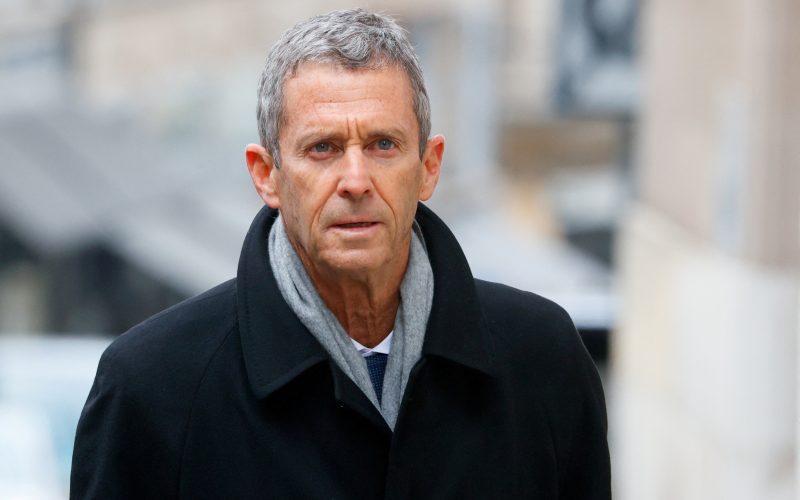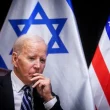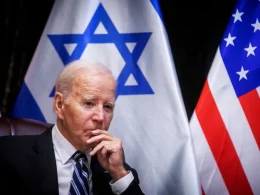The Israeli cabinet recently convened to deliberate on potential punitive measures against United Nations (UN) agencies. This meeting follows a series of disagreements and criticisms between Israel and various UN bodies over issues related to human rights, settlements, and the Israeli-Palestinian conflict. The discussions reflect ongoing tensions and highlight the broader implications for international relations and diplomacy.
Background and Context

Historical Relations between Israel and the UN
Israel’s relationship with the United Nations has been fraught with challenges since the country’s establishment in 1948. While Israel was admitted to the UN in 1949, its interactions with various UN bodies have often been contentious. Key issues have included the treatment of Palestinians, Israeli settlement policies, and military actions in territories such as Gaza and the West Bank. Over the years, numerous UN resolutions have criticized Israeli policies, leading to accusations from Israel of bias and unfair treatment.
Recent Developments
In recent years, tensions have escalated due to several high-profile incidents. For instance, the UN Human Rights Council (UNHRC) has frequently condemned Israeli actions, and reports from UN agencies like the United Nations Relief and Works Agency for Palestine Refugees in the Near East (UNRWA) have further strained relations. The Israeli government perceives many of these actions as one-sided and detrimental to its national security and international standing.
Cabinet Deliberations
Motivations for Punitive Measures
The primary motivation behind the cabinet’s consideration of punitive measures is to respond to what Israel views as systematic bias and hostility from certain UN agencies. Israeli officials argue that these agencies, particularly the UNHRC and UNRWA, have failed to address the complexities of the Israeli-Palestinian conflict in a balanced manner. By considering punitive actions, Israel aims to signal its dissatisfaction and push for reforms within these organizations.
Proposed Measures
The cabinet discussed several potential measures, including:
- Reduction of Funding: Cutting financial contributions to specific UN agencies perceived as biased.
- Diplomatic Pressure: Lobbying other countries to join Israel in calling for reforms or reductions in support for certain UN bodies.
- Operational Restrictions: Limiting the activities of UN agencies within Israeli territories and areas under its control.
- Legal Actions: Pursuing legal challenges against UN reports or resolutions deemed unfair or inaccurate.
Potential Implications
Impact on UN Agencies
If implemented, these punitive measures could significantly affect the operations of targeted UN agencies. Reduced funding and restricted access could hamper their ability to carry out humanitarian and developmental programs. For instance, UNRWA, which relies heavily on international contributions to support Palestinian refugees, might face substantial operational difficulties.
Diplomatic Repercussions
On a diplomatic level, such actions could lead to further isolation of Israel within the UN framework. Other member states might view Israel’s measures as aggressive, potentially leading to countermeasures or resolutions condemning Israel’s actions. However, Israel might also find support from allies who share its concerns about UN bias.
Regional Stability
The broader regional implications are also significant. Increased tensions between Israel and UN agencies could exacerbate the Israeli-Palestinian conflict. Palestinian authorities and groups might use Israel’s actions as a rallying point, potentially leading to increased unrest and violence. Conversely, a firm stance by Israel might push for overdue reforms within the UN, potentially leading to more balanced and effective approaches to the conflict.
Analysis Table: Motivations and Implications of Punitive Measures
| Motivation | Details | Potential Implications |
|---|---|---|
| Response to Perceived Bias | Addressing perceived systematic bias from UN agencies like UNHRC and UNRWA | Could lead to strained relations and calls for reforms within UN bodies |
| National Security Concerns | Ensuring that UN actions do not compromise Israeli security | May result in tighter control over UN operations within Israeli territories |
| Political Pressure | Utilizing diplomatic and economic measures to influence UN policies and actions | Possible support from allied countries, but also risk of increased international criticism |
| Financial and Operational Control | Reducing financial contributions and restricting agency operations in contentious areas | Impact on the effectiveness of humanitarian and developmental programs in the region |
Comparative Table: Israel’s Measures versus Other Countries
| Country | Measure Against UN Agencies | Reason | Outcome |
|---|---|---|---|
| Israel | Reduction of funding, diplomatic pressure, operational restrictions | Perceived bias in handling Israeli-Palestinian conflict | Potential operational difficulties for UN agencies, diplomatic fallout |
| United States | Withholding funding, withdrawal from UN bodies | Perceived bias against national interests, ineffective policies | Significant impact on UN agency budgets, prompted discussions on reforms |
| Russia | Restricting operations, legal challenges | Sovereignty concerns, accusations of political interference | Limited UN activities within Russia, heightened tensions with international community |
| China | Diplomatic pressure, controlled access | Human rights criticisms, sovereignty issues | Limited impact on UN operations, increased focus on bilateral negotiations |
Conclusion
The Israeli cabinet’s discussions on punitive measures against UN agencies underscore the complex and often contentious relationship between Israel and the United Nations. Motivated by a desire to address perceived biases and protect national interests, Israel’s proposed actions could have significant implications for both the targeted UN bodies and the broader international community. While these measures might prompt reforms and lead to more balanced approaches, they also risk further diplomatic isolation and increased regional tensions. As the situation unfolds, the international community will be closely watching the outcomes of these deliberations and their impact on the longstanding Israeli-Palestinian conflict.












